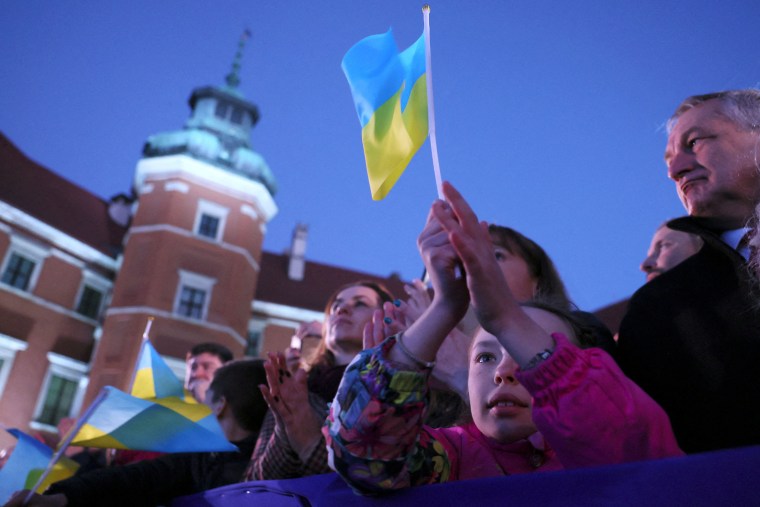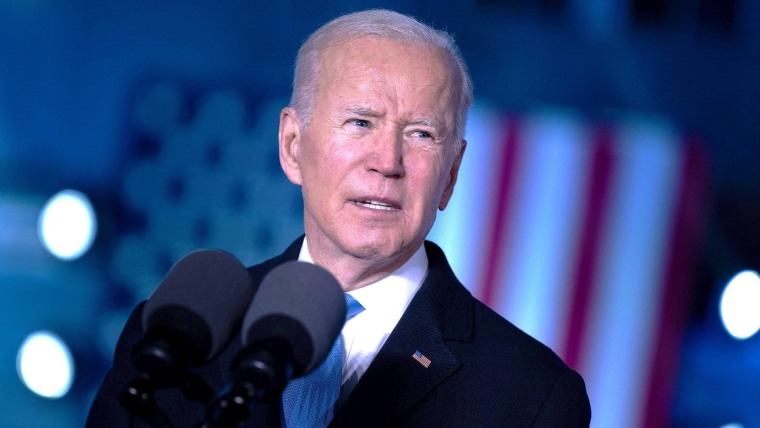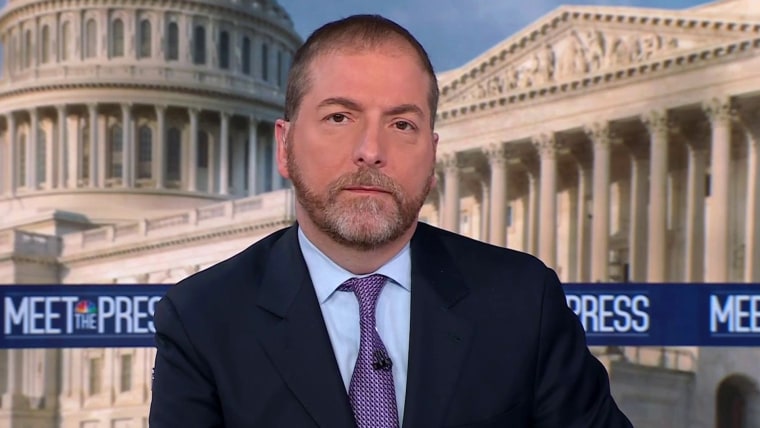LONDON — Until the final line of President Joe Biden’s speech, Western allies had been in near lockstep against Russia’s invasion of Ukraine. Nine words have caused perhaps the most significant cracks to date.
“For God’s sake, this man cannot remain in power,” Biden said of Russian President Vladimir Putin in an ad-libbed line at the end of an otherwise carefully measured speech in Poland on Saturday, capping three days of diplomacy in Europe.
The president has often criticized Putin, indeed branding him “a butcher” earlier that day. But appearing to call for an end to Putin’s leadership was seen by some world leaders, officials and experts as a risky and escalatory move — adding fuel to the Kremlin’s propaganda machine and narrowing the window for efforts to make peace in Ukraine.
The White House on Saturday tried unsuccessfully to contain the controversy, saying Biden’s remarks were about the global impact of Putin’s animus, not a call for Putin’s immediate removal.
March 28, 202202:32
On Monday, the president stood by his remarks, but clarified he wasn’t calling for a change in policy.
“I’m not walking anything back,” he said Monday in response to reporters’ questions following a federal budget event.
“I was expressing my outrage,” Biden said later in the question-and-answer session. “He shouldn’t remain in power, just like bad people shouldn’t continue to do bad things. But it doesn’t mean we have a fundamental policy to do anything to take Putin down in any way.”
He also said that, in the final words of his speech in Poland on Saturday, he was speaking to the people of Russia and beyond.
“I was communicating this to not only the Russian people, but the whole world,” Biden said. “This is just stating a simple fact that this kind of behavior is totally unacceptable.”
On Sunday he gave an unequivocal “no” when asked by a reporter if he backed regime change in Moscow.
It comes less than a week after the Kremlin said it wouldn’t rule out using nuclear weapons if it faced an existential threat.
French President Emmanuel Macron told French TV on Sunday that he “wouldn’t use this type of wording,” and warned that “we should not escalate things, neither with words or actions.”
Whereas Biden has been one of the most vocal Putin critics among world leaders, Macron has publicly sought to maintain an open line with the Kremlin before and after its troops crossed into Ukraine.
Meanwhile the chief diplomat of the European Union, Josep Borrell, made clear that “we are not after a regime change. That is something for the Russian citizens to decide.”
French defense expert François Heisbourg, who is a senior adviser at the London-based International Institute for Strategic Studies think tank, tweeted that Biden’s comments were “a highly escalatory move.” And Wolfgang Ischinger, a former German ambassador to the United States, wrote that they were “quite unwise, strategically” and warned European powers that “we should not follow this rhetoric.”
What worries some in Europe is that Biden’s unscripted remark will give credence to a belief in Moscow that Washington’s goal is not, in fact, Ukrainian freedom — but a regime change in Russia.
Kremlin spokesman Dmitry Peskov said Monday that Biden’s words were “certainly alarming” and being watched closely. On Sunday, he said the comments were “astounding, to use polite words,” according to Reuters.
 The Ukrainian cause has drawn people to the streets of European capitals to show their support.Evelyn Hockstein / Reuters
The Ukrainian cause has drawn people to the streets of European capitals to show their support.Evelyn Hockstein / Reuters
Russia has accused the West of fomenting a series of “color revolutions” to overthrow governments in several former Soviet countries, including Ukraine. It has long claimed that Washington’s ultimate motivation for supporting Kyiv is to topple Putin in a similar fashion.
“Biden’s comment will only further confirm them in that belief,” Thomas Graham, a distinguished fellow at the Council on Foreign Relations, a Washington-based think tank, told NBC News.
The president’s framing of the war as “a struggle between democracy and autocracy” already “leaves little room for diplomacy,” he added. But “Biden’s call for Putin’s removal — no matter how his officials try to walk it back — only further narrows” that window.
Biden said his remarks were unlikely to upset peace talks between Russia and Ukraine, expected to begin this week in Turkey. He said Putin acts on his instincts, not on what others say about him.
“What complicates the situation and the moment is the escalatory efforts of Putin to continue and engage in carnage, the kind of behavior that makes the whole world say, ‘My god, what is this man doing?'” the president said.
Asked for comment on the international reaction to Biden’s words, the White House on Monday pointed to an earlier statement sent widely to reporters over the weekend. “The President’s point was that Putin cannot be allowed to exercise power over his neighbors or the region. He was not discussing Putin’s power in Russia, or regime change,” a White House official said.
Not everyone was so aghast.
The remarks were championed in Kyiv, which has called on the U.S. and its allies to do more to help its fight against Russia.
Oksana Markarova, Ukraine’s ambassador to the U.S., told NBC’s “Meet the Press” on Sunday that Ukraine “heard President Biden loud and clear,” and that Putin “cannot stay in power in a civilized world.”
March 27, 202202:13
In Berlin, German Chancellor Olaf Scholz told local TV on Sunday that NATO and Biden “agree completely” that regime change was not a goal of their strategy on Ukraine.
There are also some foreign policy-watchers who are sympathetic with Biden’s position — and critical of Europe.
“It’s a bit rich for European politicians who have got Putin wrong at every moment to start piling in with advice about Russia,” said Jonathan Eyal, an associate director at the Royal United Services Institute, a London-based think tank.
The U.S. had been the loudest voice warning a sometimes-skeptical world that war was imminent, while leaders like Macron jetted to Moscow for talks.
Eyal calls the furor around Biden’s comments “enormous irrelevant noise.”
“It’s pretty obvious that the American president misspoke and it is pretty obvious that the U.S. policy is not one of conditioning everything on regime change in Moscow,” he said.
“Let’s put the record straight: The only person who is attempting regime change is Putin, who is trying to overthrow the elected government in Ukraine.”


